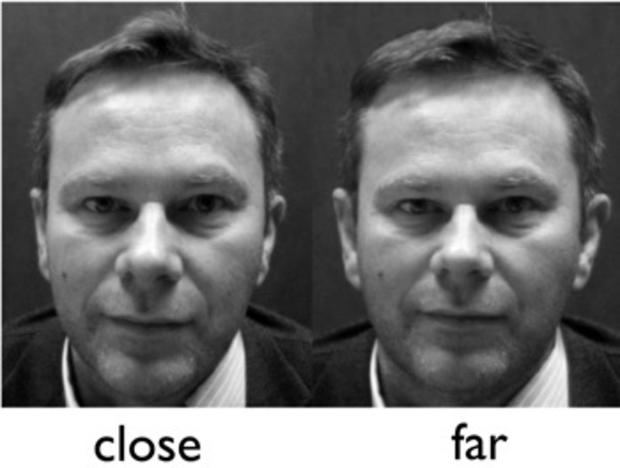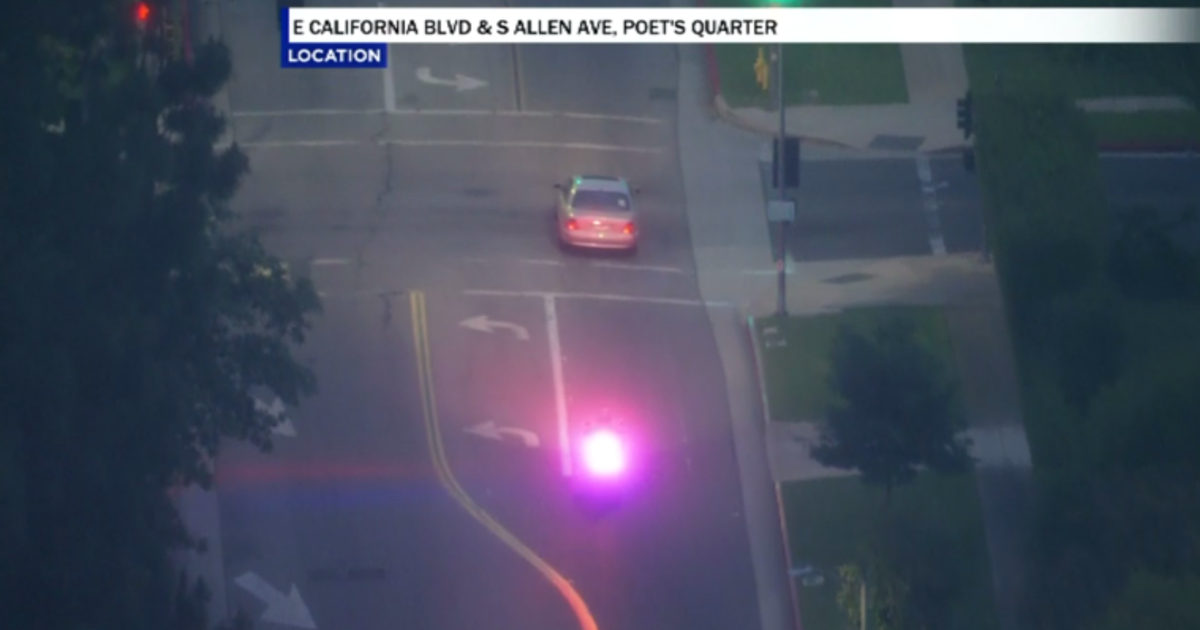Caltech Study: Close-Up Photos Make People Appear Less Attractive, Trustworthy
PASADENA (CBSLA.com) — A photo taken at close range can make the subject look suspicious and unattractive, according to a new study out of Caltech.
Caltech researchers have determined that, because of a phenomenon they call distance warping, participants judged people whose photographs were taken at a distance of, say, two feet to be less trustworthy, less attractive and less competent.
"It turns out that faces photographed quite close-up are geometrically warped, compared to photos taken at a larger distance," Caltech grad student and researcher Ronnie Bryan said. "Of course, the close picture would also normally be larger, higher resolution and have different lighting – but we controlled for all of that in our study.
"What you're left with is a warping effect that is so subtle that nobody in our study actually noticed it," Bryan said.
The study was inspired by Pietro Perona, a professor of electrical engineering and an art history enthusiast. Perona suspected that Renaissance portrait paintings featured subtle geometric warping of faces to make the viewer feel closer or more distant to a subject.
Opinions on 36 photographs – two photos of 18 people – were gathered by Bryan and Ralph Adolphs, a Bren professor of psychology and neuroscience and biology. The photographs were taken at a distance of two feet -- or inside a person's personal space -- and at seven feet.
Close-up photos made one man look more sinister, but in a photo taken at a distance, he appeared friendlier and better looking. Could distance warping be why all police mug shots make just about anyone look suspicious?
"This was a surprising, and surprisingly reliable, effect," Adolphs said. "We went through a bunch of experiments, some testing people in the lab, and some even over the Internet; we asked participants to rate trustworthiness of faces, and in some experiments we asked them to invest real money in unfamiliar people whose faces they saw as a direct measure of how much they trusted them.
The study, "Perspective Distortion from Interpersonal Distance Is an Implicit Visual Cue for Social Judgments of Faces," was funded by the National Institute of Mental Health and the Gordon and Betty Moore Foundation.




